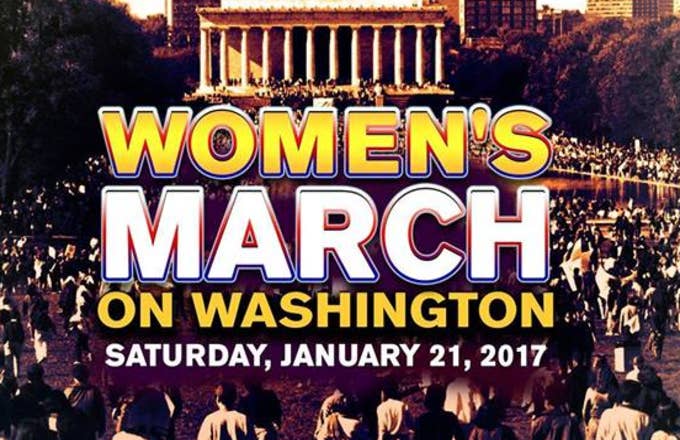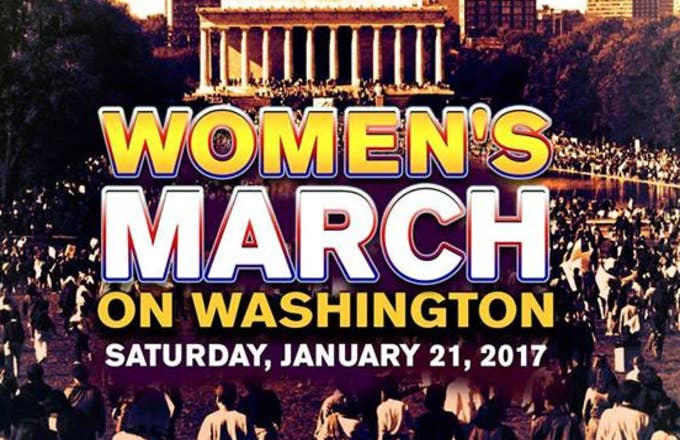
Protesters have planned a Women's March on Washington in the name of women's rights on Jan. 21, 2017, which is the day after president-elect Donald Trump's inauguration. The march doesn't call out Trump by name. However, considering what Trump has said about women, what Trump has bragged about doing to women, and what Trump has been accused of doing to women, his election win is undoubtedly an insult to countless women who have suffered from abuse.
The protesters planned to march from the Lincoln Memorial to the White House, but the National Park Service, on behalf of the Presidential Inauguration Committee, has said otherwise. They've filed a "massive omnibus blocking permit," which would bar protesters from the Lincoln Memorial as well as numerous other public spaces, the Guardian reports.
As a result, those planning to participate in the Women's March on Washington—137,000 people, according to the Facebook event—will be forced to change their plans. The Lincoln Memorial, the location of Dr. Martin Luther King Jr.'s "I Have a Dream" speech and many other protests, will be off limits, along with many of D.C.'s most famous spots, including the Washington Monument and large sections of the national mall and Pennsylvania Avenue.
On behalf of the Presidential Inauguration Committee, the National Park Service has not only blocked off the locations for inauguration day itself but for weeks before and after the event.
It's at least partly a practical decision. NPS spokesperson Mike Litterst told the Guardian that bleachers and viewing stands have been put up since as early as November 1, and everything for the inauguration won't be cleared from public lands until March 1. But others don't think it's so innocent.
Constitutional rights litigator and the executive director of the Partnership for Civil Justice Fund Mara Verheyden-Hilliard said, "What they've done is take all of these spaces out of action." She has dealt with cases regarding inauguration day access for protesters in the past, but she said it's "extremely unique" for protests to be blocked days after the inauguration. She told the Guardian, "It hasn't come up in any way previously, where you've had a groundswell of people trying to have access on the Saturday, January 21, and thousands of people want to come, and the government is saying we won’t give you a permit."
Nonetheless, the Women's March on Washington is already adjusting. While "the Lincoln Memorial is not possible," a spokesperson for the march, Cassady Fendlay, said they've "had no issues with the permitting process at all." She told the Guardian that they're talking to police and that they've "secured another location" nearby. The exact location, however, is unclear at this point.
The marchers don't call out Trump specifically, but their website notes, "The rhetoric of the past election cycle has insulted, demonized, and threatened many of us—immigrants of all statuses, Muslims and those of diverse religious faiths, people who identify as LGBTQIA, Native people, Black and Brown people, people with disabilities, survivors of sexual assault—and our communities are hurting and scared."
The goal of the Women's March on Washington, according to their Facebook page, is to "send a bold message to our new administration on their first day in office, and to the world that women's rights are human rights."

